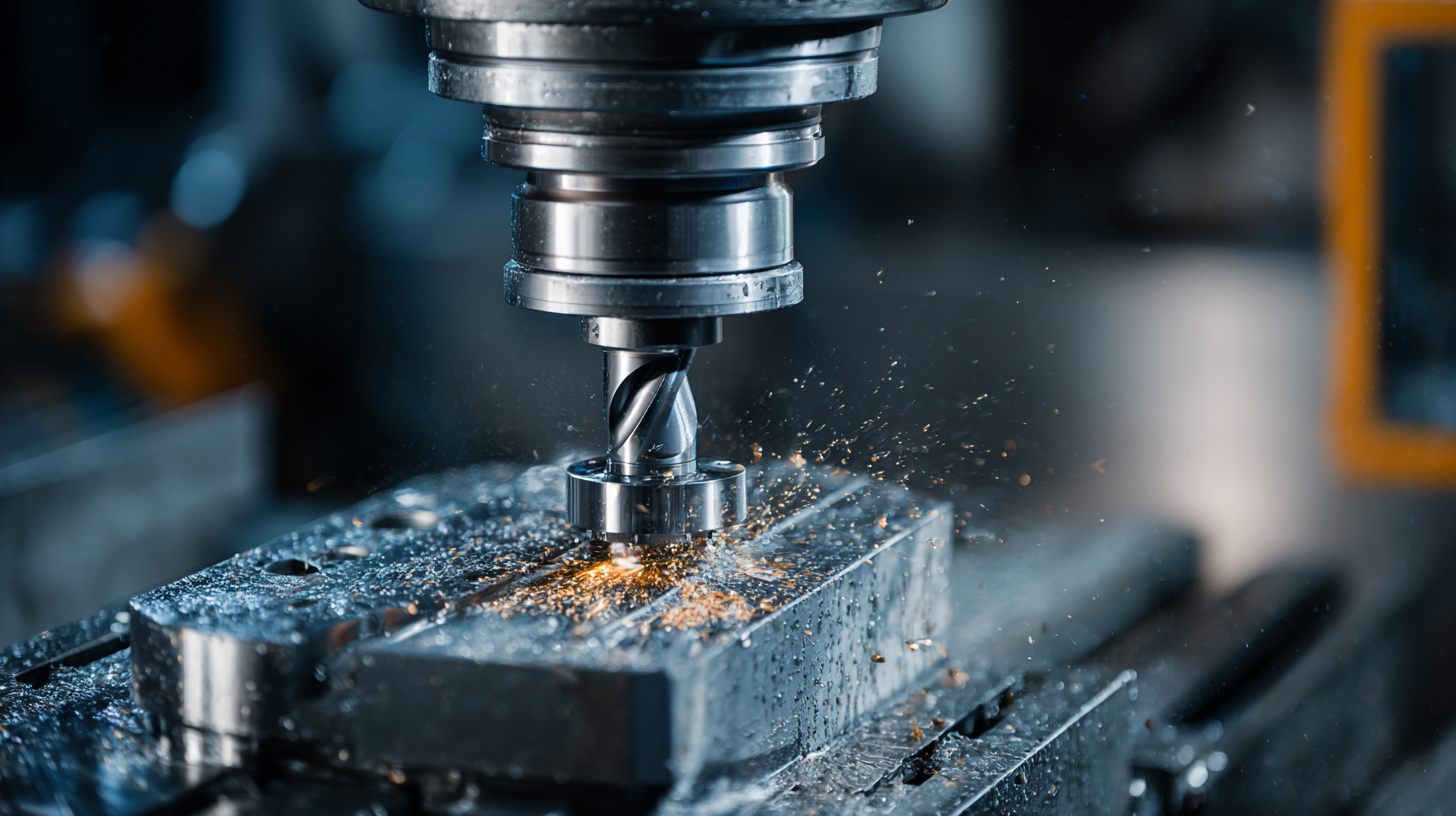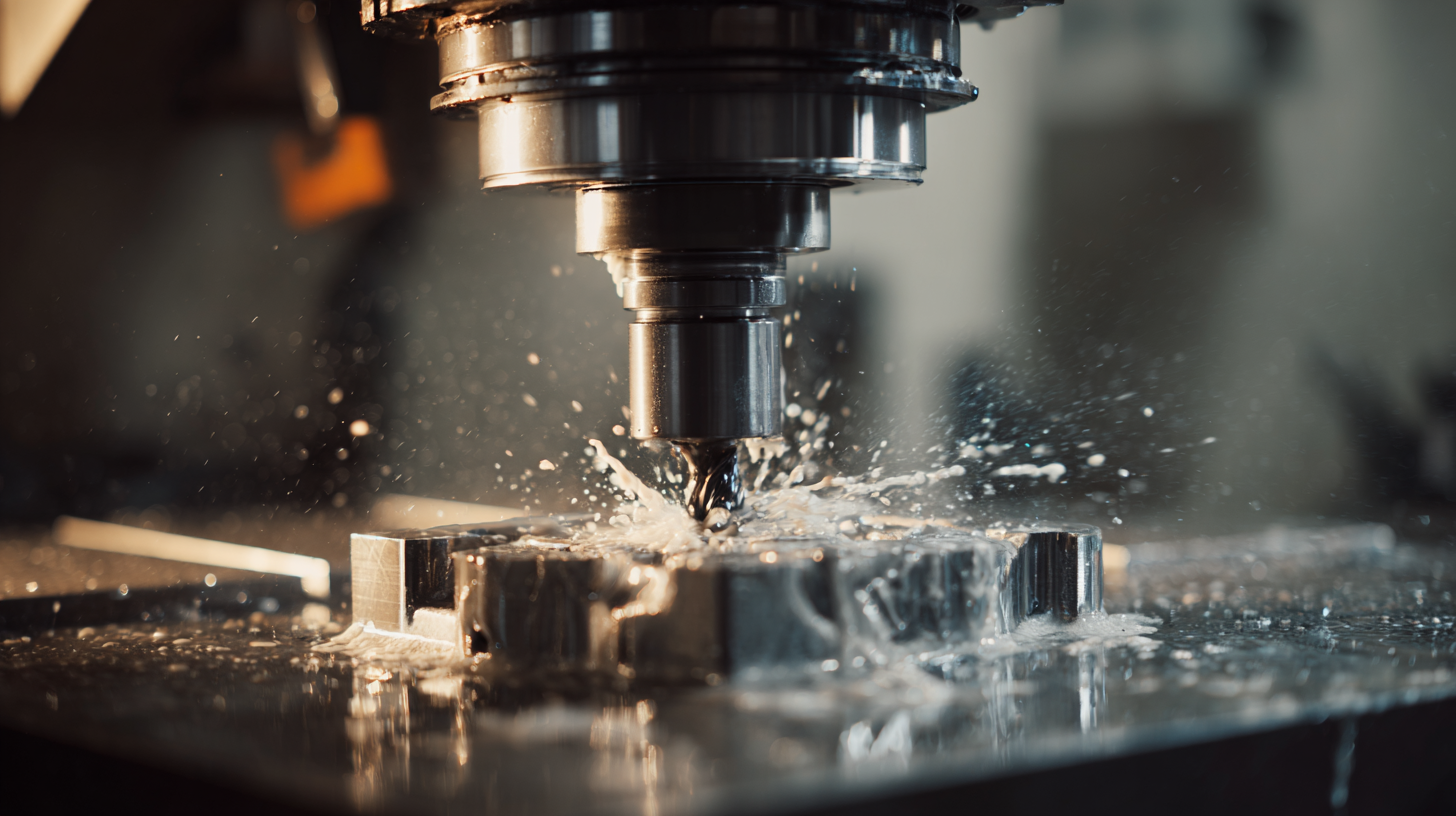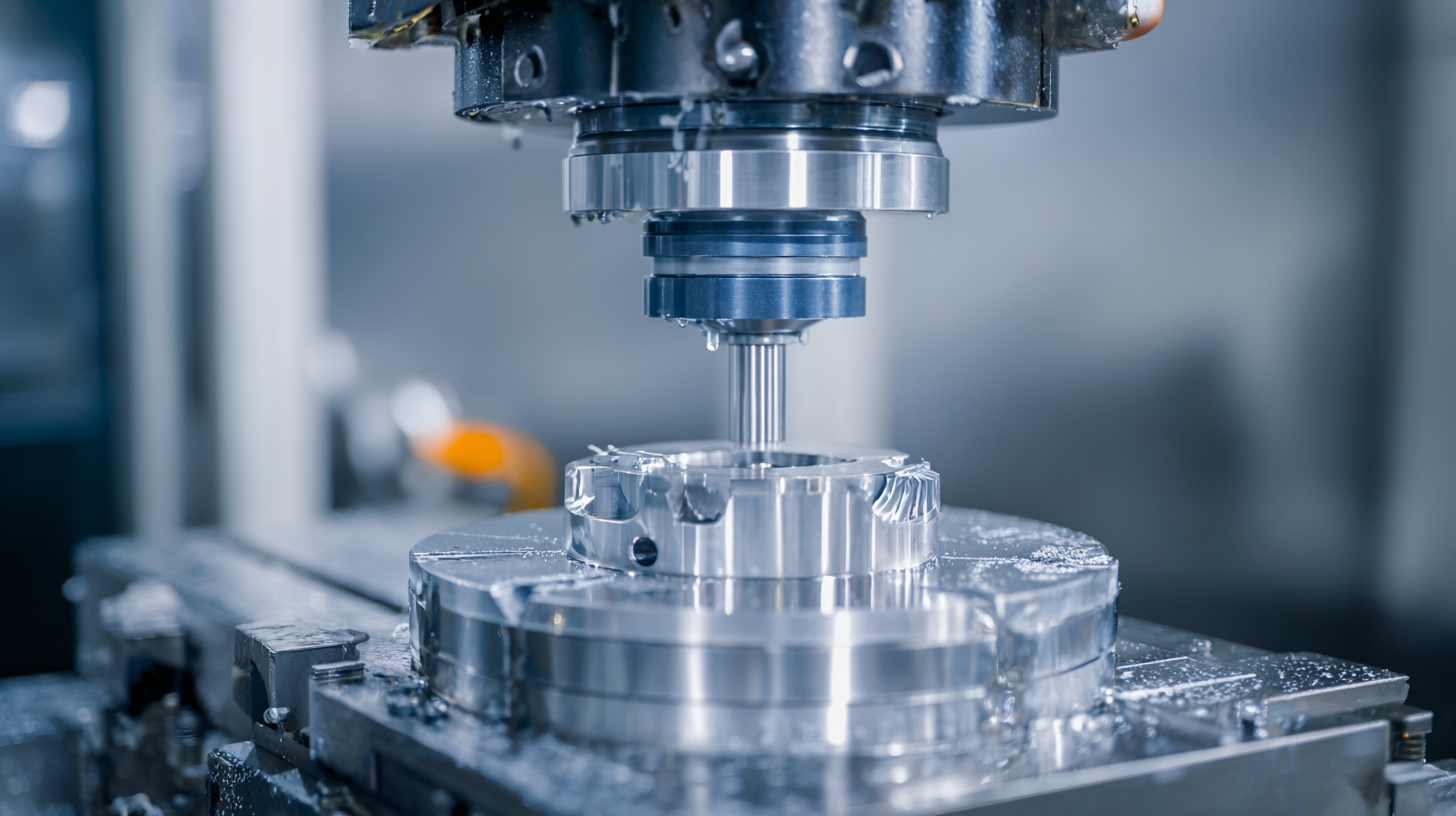How to Navigate Import and Export Certifications for the Best CNC Machining Services
In the rapidly evolving landscape of manufacturing, CNC machining has emerged as a cornerstone technology, driving efficiency and precision across various industries. According to the latest report from MarketsandMarkets, the global CNC machining market is projected to reach $117.93 billion by 2026, growing at a compound annual growth rate (CAGR) of 5.23%. As businesses strive to leverage the benefits of this advanced technology, understanding the nuances of import and export certifications becomes paramount.
These certifications not only ensure quality and compliance with international standards but also streamline the manufacturing process. By navigating these requirements effectively, companies can enhance their CNC machining capabilities, access new markets, and maintain a competitive edge in a crowded global marketplace. This blog will guide you through the essential certification processes, enabling you to make informed decisions that can elevate your CNC machining services.
Understanding CNC Machining Services and Their Importance in Global Trade
CNC machining services play a crucial role in global trade, facilitating the production of precision components across various industries such as aerospace, automotive, and electronics. According to a report by Market Research Future, the global CNC machining market is expected to reach approximately $100 billion by 2025, driven by increasing demand for high-quality machined parts and advancements in automation technology. CNC machining allows manufacturers to achieve exceptional accuracy and repeatability, essential in meeting the stringent requirements of international standards.
The importance of CNC machining services extends beyond mere production; they also significantly affect supply chain reliability and efficiency. A study by Deloitte found that 60% of manufacturers rank supply chain management as their top priority for global competitiveness. With the integration of CNC machining, companies can optimize their operations, reduce lead times, and enhance their capacity to respond to changing market demands. This adaptability is particularly vital in today's fast-paced global economy, where the ability to pivot quickly can determine market leadership. By navigating import and export certifications effectively, businesses can further leverage these machining services to access new markets and streamline their global trade strategies.
Key Import and Export Certifications for CNC Machining: What You Need to Know
When engaging in CNC machining services, understanding the key import and export certifications is crucial for smooth operations. Certifications such as ISO 9001 and CE Marking can significantly enhance product quality and compliance. ISO 9001 ensures that manufacturing processes meet international standards, while CE Marking demonstrates compliance with EU safety, health, and environmental regulations. These certifications help companies build trust with partners and customers, ensuring that their products meet the necessary legal requirements.
Additionally, knowing the specific certifications required for different markets can prevent delays and penalties. For example, the Export Administration Regulations (EAR) and the International Traffic in Arms Regulations (ITAR) are essential for companies exporting technical data and defense-related products. Similarly, understanding the documentation process for customs clearance is vital for maintaining timely shipments. By staying informed about these certifications, businesses can effectively navigate the complexities of international trade in CNC machining, ultimately leading to better service and customer satisfaction.

Market Trends for 2025: Analyzing Demand and Growth in CNC Machining
The global CNC machining market is poised for substantial growth, anticipated to expand from $101.22 billion in 2025 to an impressive $195.59 billion by 2032. This remarkable increase, projected at a compound annual growth rate (CAGR) of 9.9%, underscores the escalating demand for precision manufacturing across various industries. In particular, the automotive, aerospace, and electronics sectors are driving this surge, as companies increasingly seek high-quality, efficient, and cost-effective machining solutions.
As we approach 2025, it will be crucial for stakeholders to stay informed about market trends that influence CNC machining services. The integration of advanced technologies, such as automation and artificial intelligence, is reshaping the landscape and enhancing production efficiency. Additionally, an emphasis on sustainability and eco-friendly practices is becoming more prominent, prompting manufacturers to adopt greener techniques and materials. Understanding these dynamics will be essential for businesses aiming to capitalize on the growing opportunities within the CNC machining sector in the coming years.
CNC Machining Market Trends: Demand and Growth Analysis (2025)
This chart displays the projected demand growth across various sectors utilizing CNC machining services by 2025. It highlights key industries such as Aerospace, Automotive, Medical, and Electronics.
Tips for Streamlining the Certification Process in CNC Manufacturing
Navigating the certification process in CNC machining can be daunting, but with the right tips, you can streamline this journey effectively. First, familiarize yourself with the specific certifications required for your operations, such as ISO standards or industry-specific qualifications. Understanding these requirements early on helps in organizing your documentation and processes to meet compliance seamlessly.
Next, consider establishing a checklist to track your progress throughout the certification process. This checklist should include all necessary documentation, deadlines, and any training required for your team. Engaging your staff in the certification effort not only fosters a culture of compliance but also ensures that everyone is on the same page. Moreover, leveraging technology through certification management software can simplify tracking and managing the various components involved, facilitating a more efficient and organized approach. With these strategies in hand, you can navigate the import and export certifications more easily and enhance the overall quality of your CNC machining services.

Best Practices for Selecting CNC Machining Services with the Right Certifications
When selecting CNC machining services, the importance of certifications cannot be overstated. Certifications such as ISO 9001 and AS9100 serve as crucial indicators of a company's commitment to quality and precision. These standards ensure that the machining services adhere to stringent quality management practices, which can significantly reduce the risks associated with product defects and inconsistencies. Companies looking to partner with CNC service providers should prioritize those with relevant certifications, as this not only guarantees superior service but also highlights the company's dedication to continuous improvement and customer satisfaction.
Additionally, businesses should inquire about specific certifications relevant to their industry. For instance, aerospace or medical industries require compliance with specialized standards like FAA regulations or FDA guidelines. Verifying a provider’s technical capabilities through their certifications can offer peace of mind, knowing that the machining processes meet industry-specific requirements. It's essential to request copies of these certifications and assess their validity, as this enhances accountability and fosters a trustworthy business relationship. Ultimately, selecting a CNC machining service with the right certifications directly contributes to the efficiency and reliability of your production processes.
How to Navigate Import and Export Certifications for the Best CNC Machining Services
| Certification Type |
Description |
Importance |
Validity Period |
| ISO 9001 |
Quality Management Systems Certification |
Ensures consistent quality in services |
3 years |
| ISO 13485 |
Quality Management for Medical Devices |
Essential for companies in the medical field |
3 years |
| CE Marking |
Conformity Mark for products in Europe |
Indicates compliance with EU safety standards |
Varies by product |
| RoHS |
Restriction of Hazardous Substances |
Ensures products are free from harmful substances |
N/A |
| ITAR |
International Traffic in Arms Regulations |
Required for export of defense-related products |
Renewed annually |







